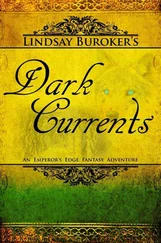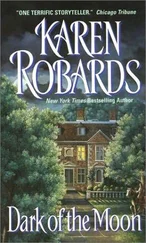Tasting bile, Josie got a bucket and scooped up the remains of the snake. She had to use the hoe to knock the head off, ripping the mesh as she gouged at it. Gagging again, she looped the hoe edge under the curved fangs and lifted the head into the bucket. Sliding the metal end of the hoe under the metal handle of the bucket, she carried it to the steel garbage can at the back of her lot. Metal hoe clicked against bucket handle, clicked with each shaking step she took.
She left the bucket beside the garbage can. She’d done as much as she was able to for the moment. She slipped the hoe free, and the bucket tilted, wobbled. Nausea rolled up as she saw the bloodied heap mixed with chunks of newsprint.
She ran. Dropping the hoe, she ran for her garden, but she didn’t make it. Three feet away, she doubled over, retching, the harsh sounds tearing through her until she was spent and empty.
But she stayed upright.
Later she would remember that she wasn’t driven to her knees.
She coped.
Reminding herself of that truth over and over, she summoned the strength to retrieve her abandoned hoe, to hook up the hose to the outside spigot and waste precious water flooding down the concrete stoop and screen door until no trace of the snake’s presence remained except the gaping mesh flaps hanging like pennants from the edge of the screen door.
She felt as if the snake had exuded evil, its poisonous molecules oozing from it to her, lodging in her clothes, her hair. If she could have, she would have stripped naked and bathed outside.
Instead, methodically, systematically, squandering water with a vengeance, she sprayed herself with the hose first and then went inside, cleaned up and changed into a cotton dress. Keeping out the clip that had been Mellie’s present, she first washed it and then threw her shorts and shirt into a garbage bag.
Her hands never stopped shaking.
Bart would have been surprised.
Shuddering, she knotted the bag with one vicious twist and dropped it into the trash. She wasn’t overreacting one little bit, she told herself firmly and marched out her front door.
A tiny clink as the toe of her shoe nudged a small cylinder wedged into the crack between two of the walkway bricks.
The red-pepper capsule.
Stooping, she picked it up. Drops of water glistened against its shiny surface. The force of the water from the hose had forced it into the space where two bricks hadn’t quite met.
It must have been on her stoop. Under her newspaper. With the rattlesnake on top? She recalled distinctly the clattering sound the cylinder had made as it rolled off the edge of Hayes’s porch.
Driving into Angel Bay over the bridge that crossed Angel River, she could see the roof of Ryder Hayes’s house to the north.
At the Hayes property, the river swung in before taking a wide curve out toward the gulf and the bridge from the mainland to the offshore islands.
Devil’s Island was visible from the Hayes property, then Santa Ana and finally Madre Mia, which, over the years, had become Madder Me for Angel Bay natives.
He had come to her house this morning, and she hadn’t heard him.
She’d heard the newspaper delivery boy.
But not Ryder Hayes.
Every self-serve newspaper stand she passed on the way to the police station had black headlines that leapt out at her, and she kept her eyes fixed straight ahead. Just before she walked up the steps into the station, she felt a tickle of awareness at the back of her neck, and, frowning she stopped and turned to look behind her.
A shadow vanished behind the corner of the dry cleaners.
An effect of the hazy heat?
Or someone hiding from her? Ryder Hayes?
The deep tolling of the bell from the Baptist church down near the river rang out, the sound long and sonorous, throbbing in the air around her.
She squinted toward the corner and saw nothing except the blaze of sun and the haze of heat rising from the sidewalk.
The door to the police station opened and Jeb Stoner poked his head out.
“Hey, Miz Conrad, come on in out of the heat. I’ve been watching for you.”
“Thanks.” Josie cast one quick look at the empty street behind her and followed the sandy-haired detective inside. She wanted to ask him why he’d been waiting for her, but thinking about that uneasy awareness she’d had, she allowed the moment to pass. Maybe she’d ask him later.
Inside he motioned her to his desk, letting her precede him. Like a rag doll, he flopped into a cracked vinyl swivel chair behind his desk. The chair creaked and groaned under his slight weight. “Can I get you some station-house gunk?”
“No. Thank you.” She folded her hand over the clasp of her purse hanging from its shoulder strap.
He always offered her coffee, and she never accepted. He never suggested a Coke or a glass of water. Josie wasn’t sure whether he didn’t remember or whether it was his way of making an awkward joke. Either way, she had grown tired some months ago of the pro forma offer.
“I don’t drink coffee.”
“Yeah, right.” Everything he said to her came out sounding as if he didn’t believe her. It had been that way from the first.
Conveying the impression that he had all the time in the world, he fanned himself with a sheaf of papers as he waited for her to begin. She’d discovered it was one of his techniques. Most people found it hard to sit in silence. She wasn’t one, but she had business and she wanted to get on with it, not play head games.
“Detective Stoner, something strange happened yesterday.”
He leaned forward and slipped into a cracker drawl. “Miz Conrad, if you only knew, sumpin’ strange happens in this town every day.” He tapped his fingers on his desk. “We haven’t found that boy. Eric.” He looked away from her.
“Yes. I know.”
“I’m sorry. I know you hope we’ll find him alive. We sure as hell want to.” Continuing to avoid her gaze, he sighed.
“Detective—” she paused, not quite sure how to say what she wanted to “—Ryder Hayes is a sort of neighbor of mine.”
“What kind of neighbor is that? A ‘sort of’ one?” The chair creaked and squeaked. “Do you know him?”
“No. I met him yesterday for the first time.” She lifted the flap of her purse and her fingers brushed the edge of the capsaicin cylinder. “Look, I think I heard a child in his house. Crying.” She stared at the floor, at the black pattern of scuff marks against the linoleum, the coffee stains on the side of Stoner’s desk. “I know it sounds unbelievable, but…”
There was a long pause.
“And when would that have been, Miz Conrad?” he asked gently. He picked up a pen, put it down carefully. “Yesterday?”
“Yes,” she said slowly, puzzled.
“You were pis—ticked off with him, weren’t you? About the dogs you thought were his?”
“What?” Josie spoke very carefully, not ready to uncork her temper but well and truly pis—ticked off now. “What are you talking about?”
“Um,” he said, stretching out his short legs and watching her from half-closed eyes. He was a man who sat tall and stood short, a disproportionately long torso giving the illusion that he was taller than his five foot nine. As he pivoted under his desk, his feet brushed against the sides of her shoes. Josie tucked her toes under the rung of the metal folding chair as he pa-dum-dumped in a negligent rhythm on the arms of his chair. “Well, it’s like this, Miz Conrad. Hayes came in earlier today.”
“What?” Josie’s fingers tightened on her purse.
That was why Stoner had been watching for her, to “handle” her with official soothing.
“He said we might expect a call from you. He wanted to touch base with us first.”
Читать дальше












